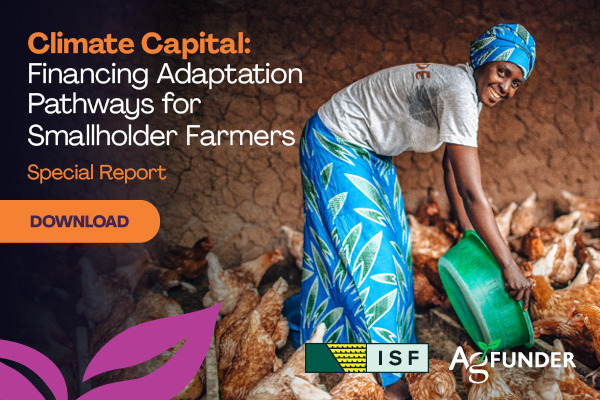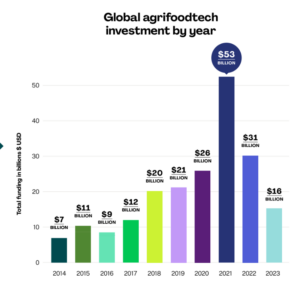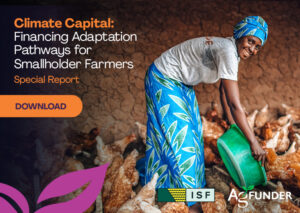It appears that producers of plant-based proteins may have a lot more work to do in convincing Chinese consumers that their products are an adequate replacement for animal meat, the findings of a new study suggest.
Consumer interest in plant-based meat alternatives spiked at the height of the China’s domestic Covid-19 crisis, when its strictest lockdown measures were in force and meat supplies faced significant disruption, the study found.
But the clamor for meat alternatives quickly subsided as the supply of traditional proteins and other food categories stabilized – indicating that companies offering such products need to do more brand-building in the Chinese market.
The research – by advocacy group Food Industry Asia (FIA) and market analysts AI Palette (disclosure: AgFunder portfolio company) – looked at online conversations and interactions to form a picture of consumer sentiment and demand regarding food products between January and March this year, when China’s lockdown measures were at their zenith.
Certain animal-based proteins saw a substantial decline in demand during the three-month period – though reasons for this were mixed.
Demand for mutton and duck meat dropped by 45% and 14%, respectively. This was “primarily driven by frustrations around distribution or delay, or lack of stock,” said AI Palette’s head of innovation Salomi Naik, who was speaking during an online event where the findings were published.
Notably, health and safety were low on the list of concerns for consumers who couldn’t buy meat, she added.
Little concern over hygiene, safety of wet markets
Much of China’s meat is purchased at ‘wet markets’ (open-air or covered markets housing multiple vendors selling meat, seafood, and fresh fruits and vegetables).
A minority of these wet markets feature stalls that sell so-called ‘exotic meats‘ derived from wildlife such as bats. This has given wet markets as a whole a controversial, and not entirely fair, reputation as a possible source of the Covid-causing coronavirus’ transmission to humans.
The Chinese government temporarily closed many wet markets – including those selling wildlife meat – during the three-month period analyzed by the study. Combined with other lockdown measures, such as stay-at-home orders and social distancing rules, this lead to disruptions in the sale of meat and other foods to end consumers.
“What we saw was animal protein, as a whole, was mainly hit when China decided to shut down its wet markets. So [the decline in demand] was primarily driven by consumer frustration with lack of availability and distribution, rather than safety concerns,” Naik said. “[For] wet markets, all the negative sentiment was around lack of availability, or lack of distribution – not necessarily concerns around safety or hygiene.”
No significant spike in plant-based proteins
You might expect the diminished availability of animal protein to result in an upswing of demand in plant-based proteins that can fill the gap. At least, that’s what the likes of Beyond Meat and Cargill – who’ve both launched plant-based imitation meat products in China over the past week – will be hoping.
But that wasn’t quite what happened, according to FIA and AI Palette.
“Even though traditional sources were hit by a lack of availability, this didn’t translate into a [significant] spike in demand for plant protein sources. Mushroom and soy continued to remain popular, but didn’t see [any] significant upsurge or spike in demand,” Naik explained.
When it came to imitation meat products, there was a flurry of interest at the start of the strict lockdown. But this soon abated.
Impossible Foods raised $500 million last month to accelerate its push into Asian markets. Read more here.
“When we looked at sources like Impossible Foods, while there was a spike in January, [it was] just 15% of its 2019 peak,” Naik said. “So while there was some interest, it was definitely not a significant spike – and it has not been maintained, either. So plant-based didn’t benefit significantly from animal proteins not being available.”
AI Palette specifically analyzed conversations around the term ‘Impossible Foods,’ rather than plant-based in general – despite the fact that the US company’s products are not yet available on general sale in China, with the exception of the autonomous territories of Hong Kong and Macau.
Explaining the move, Naik said the US company “was the main plant-protein producer for whom we saw a significant trend,” as mainland Chinese consumers still discussed the brand on social media and searched for it online. Local plant-based protein brands such as Green Monday or Omnipork were not discussed in the report because they showed “no trends correlated with Covid-19, which were statistically significant, which is why we highlighted Impossible Foods,” she said.
Animal meat a more “trusted” protein source
The lack of a sustained spike in interest in plant-based meat analogs indicates that Chinese consumers still see animal meat as a “trusted protein source” over alternatives, Naik suggested.
“It may signify the two are not [seen as substitutes]. So you cannot replace animal protein with plant protein; they meet different needs – and it continues to be that way despite disruptions in distribution.”
AI Palette analyzed close to 340 million discrete data points. These consisted of social media engagements – including posts, comments, shares, and ‘likes’ – and web search queries made between January 2019 and March 2020.
It compared its findings with trends observed since the start of 2019, before the disease reached epidemic proportions. it considered whether social media and web search activity around certain trends increased or decreased in relation to activity around Covid-19.

















Sponsored
International Fresh Produce Association launches year 3 of its produce accelerator